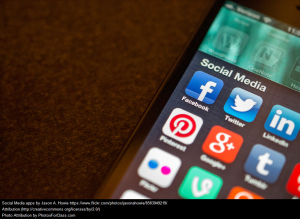Through the past few classes we have been looking at an introduction to media literacy, through that we have explored how the online world has changed over the years and how it is allowing us to be more connected. We are so connected online, the virtual and physical world are intertwined causing an augmented reality.
However, with more connections, it has left many of us wondering the pros and cons with being living in a connected cultulre. In Cortney Leonard’s blog on My Thoughts on Foundational Theories and Media Education, she talks about finding the balance in our lives between being connected online and being present in the moment. Jennifer Stewart-Mitchell has similar thoughts in her blog, Me… Programmed?? Are we Substituting Digital Connections for Real Connections?, asking the readers if being connected is changing the way we act. She continues to talk about our obsession over over-sharing our activities on social media. In addition, “the urgency to have someone else connect…” (Stewart-Mitchell, 2015).

These changes are causing educators around the world to educate themselves on media literacy and digital citizenship, which is why many of us are taking this course. On top of changing the way we act and trying to find balance, many people are using media in ways to spread negative messages, which is mentioned in Kirsten Hansen’s blog post, From Cyberbullying to Veneration and Homage. People haven’t been taught how to use digital world as responsible digital citizens.
My question to you is what is your purpose in online spaces? Is it just to make connections or is there a bigger picture?
Often as educators, we look to technology to serve as a resource, to make connections around the world, to answer questions quickly, and the list goes on. We turn to social media making tweets or posting just to make that connection. In my personal life, I browse Facebook, check Instagram, and write/respond to emails. But are we using online spaces to the fullest potential?
If we look at the Saskatchewan Digital Citizenship Continuum from K-12, there are three main elements RESPECT, EDUCATE, PROTECT. I feel that we as educators really focus on the EDUCATE and PROTECT strands, but often forget about the RESPECT strand. We have so much potential with the online community to change the world and to start modelling this to our students, but we often shy away from it. As Katia Hildebrant said in her blog, In online spaces, silence speaks as loudly as words, “I have a responsibility to use my privilege to speak out and use my network for more than just my own benefit or self-promotion; not doing so is a selfish act.” (Hildebrandt, 2015).